- David Rothkopf: The U.S. intelligence community is being slammed as overreaching
- He says more news of spying, on United States' European allies, has drawn shock and anger
- He says it's out of control, with poor oversight and disregard for laws and U.S. values
- Rothkopf: There are real threats, but intelligence community hasn't shown spying is only answer
Editor's note: David Rothkopf writes regularly for CNN.com. He is CEO and editor-at-large of the FP Group, publishers of Foreign Policy magazine, and a visiting scholar at the Carnegie Endowment for International Peace. Follow him on Twitter.
(CNN) -- It's hard to think of a time in the history of America's intelligence community when it has been more battered by accusations of over-stepping or mismanaging its mission: to secretly gather information to support the activities of the U.S. government
The list of recent revelations grew over the weekend with allegations that America has been systematically spying on its European allies. Reports in the European press, apparently drawn from documents provided by Edward Snowden, suggested that America spied on the European Union, France, Italy, Greece and other close international friends, listening in on encrypted fax transmissions and planting bugs and other devices at 38 embassies and missions in Washington and New York, as well as locations in Europe.

The timing is not great: the eve of scheduled trade talks with the Europeans, a priority of the Obama administration. The new reports have caused a furor across the continent, stoking the uproar caused by earlier Snowden-related revelations that America has been listening in on millions of German calls and e-mails.
Top officials, like Secretary of State John Kerry, shrugged it off by saying allies often spy on each other, and others, like former Director of the NSA and CIA Gen. Michael Hayden, noted that some friends spied on us. But the damage was done to important relationships and to the Obama administration's prior claims that it would conduct itself according to a different standard than past U.S. governments.
This all comes on the heels of reports that the overreach of the intelligence community begins at home. While it will be cold comfort to our NATO allies that we are only treating them as we do our own people, the details of programs that warehouse massive amounts of phone metadata and e-mail traffic were the first shock waves produced by the Snowden leaks.
But the problems go beyond what Snowden leaked to the very fact that a comparatively junior contractor could gain top level clearances and access to so much information. Indeed, it is deeply disturbing that hundreds of thousands of private contractors had Top Secret clearances and that, as we have learned, many may have gone through inadequate screening procedures or been inadequately managed.
Earlier news -- about the scope of U.S. drone programs managed by the intelligence community, "kill lists," extra-judicial targeting of perceived threats, the scope of America's cyberwarfare programs against enemies in Iran (Stuxnet), China and elsewhere -- have already called the role of the community into question. Just last week NBC News reported that a senior U.S. military leader very close to President Obama and his national security team, Gen. James Cartwright, was a target of a leak investigation concerning Stuxnet..
These are all stories of a culture of secrecy and of arrogance that has simply gone too far. Perhaps each and every one of these missions began with a reasonable national security goal. But because so much of the planning and execution takes place behind closed doors or in situations in which the term "oversight" is laughably applied to wink-and-a-nod rubber stamping of initiatives, it is perhaps more surprising we have seen so few scandals than that we are dealing now with what seems like so many.
Consider: According to the U.S. government's own figures, last year the Foreign Intelligence Surveillance Court received 1,789 applications for approval of government spying operations and OK'd all but one. Since 2001, according to a report in Salon based on government figures collected by the Federation of American Scientists, more than 15,000 applications were approved and only 10 denied. The Supreme Soviet of Cold War Russia was a less effective rubber stamp.
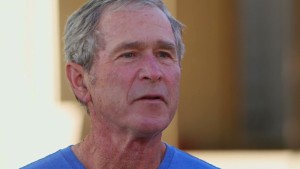 Bush on Snowden: He damaged the country
Bush on Snowden: He damaged the country 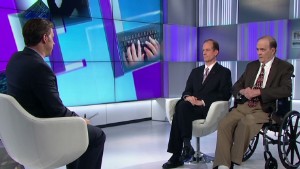 Obama misleading U.S. on surveillance?
Obama misleading U.S. on surveillance? 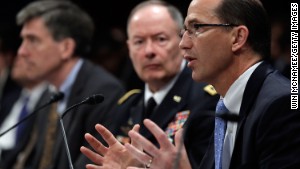 Baer: I am skeptical over NSA claims
Baer: I am skeptical over NSA claims 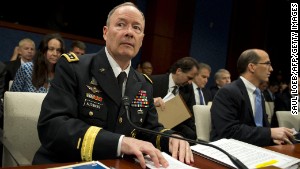 Schiff: The NSA needs to declassify more
Schiff: The NSA needs to declassify more The FISA Court is just one of the feeble oversight mechanisms that apparently did not do its job. Congressional and executive branch officials have bought into the post 9/11 paranoia and hopped up threat mentality and come to accept that even the possibility of an attack on the United States warrants disregard for U.S. laws and international agreements. Not to mention the principles of respect for individual liberties and reasonable constraints on government power on which the United States was established.
This was well illustrated when NSA Director Keith Alexander argued that the agency's massive surveillance programs were warranted because they allegedly stopped "over 50" terror attacks, with scant reference to the size of the attacks, the real risk posed, whether other means to stop them that didn't involve massive surveillance might exist, or to the possibility that the damage done to civil liberties might be worse than that which might have been produced had the terror plans gone forward.
Indeed, senior U.S. officials have told me that, in their view, a primary motivator for accepting all these programs was fear that resisting would hold dire political consequences for them, should an attack occur. In other words, in the modern U.S. intelligence community, CYA has become more important than CIA.
There are real threats out there. And, yes, other nations spy on us. Terrorists use new technologies to target American interests and citizens and must be contained. Cyberwarfare poses a growing threat to the United States as well as other nations.
All these facts require analysis and countermeasures by the U.S. government. Some require the United States to go on offense. But what the revelations show is a series of errors of overreach and bad judgment, not that all our programs should be eliminated. The problem here is one of scale and of profoundly compromised and twisted values.
That problem itself is complicated and exacerbated by America's emergence as the world's first cybersuperpower. As such, we have sought to flex our technological muscles not only in ways that make us safer but that introduce a new form of constant, low-grade, invisible conflict that makes Cold War spy games seem quaint in their narrowness--even if their stakes were much higher. In the past, I've called this Cool War—neither cold nor hot but dangerous nonetheless, not just to our enemies but also to our friends, our interests and our values.
Edward Snowden broke the law and if the United States can bring him in, he deserves to be prosecuted. But the ones who should be in their own hot seat are those who created, approved and rationalized into existence the sprawling, seemingly uncontainable global intelligence and cyberwarfare apparatus that is as much of a threat to the kind of country we want to be as any terrorist group.
The problem for us, of course, is the only people with the power to restore balance and common sense limitations to these programs are the ones who let them get so out of control in the first place.
Follow us on Twitter @CNNOpinion.
Join us on Facebook/CNNOpinion.
The opinions expressed in this commentary are solely those of David Rothkopf.
via CNN.com - Top Stories http://rss.cnn.com/~r/rss/cnn_topstories/~3/hPWSt8QQvx8/index.html
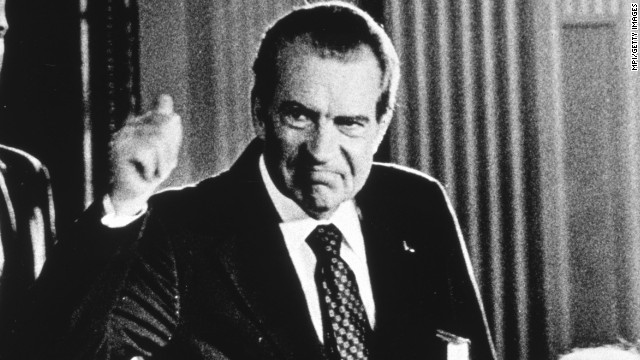 Some did it for the money, some did it for idealism, others didn't do it at all. The U.S. has seen a number of high profile leak scandals including the Pentagon Papers during the administration of President Richard Nixon. Click through to see more high-profile intelligence leaking cases.
Some did it for the money, some did it for idealism, others didn't do it at all. The U.S. has seen a number of high profile leak scandals including the Pentagon Papers during the administration of President Richard Nixon. Click through to see more high-profile intelligence leaking cases. 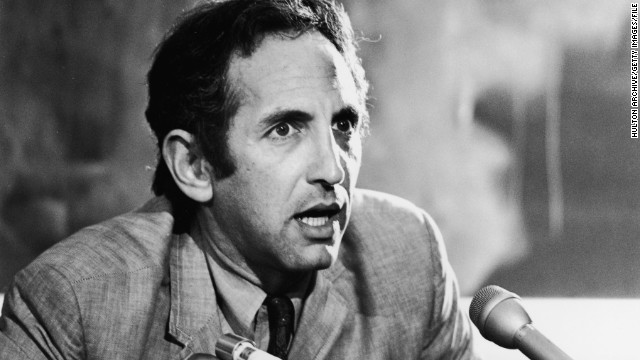 Military analyst
Military analyst 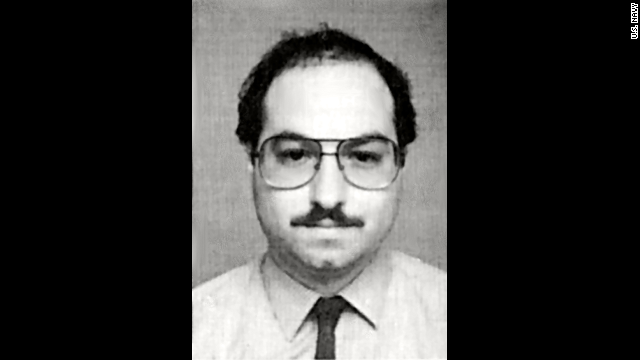 Jonathan Pollard is a divisive figure in U.S.-Israel relations. The former U.S. Navy intelligence analyst was caught spying for Israel in 1985 and was sentenced in 1987 to life imprisonment. Israeli Prime Minister Benjamin Netanyahu has publicly called for President Barack Obama to release Pollard after Pollard's wife appealed to Netanyahu.
Jonathan Pollard is a divisive figure in U.S.-Israel relations. The former U.S. Navy intelligence analyst was caught spying for Israel in 1985 and was sentenced in 1987 to life imprisonment. Israeli Prime Minister Benjamin Netanyahu has publicly called for President Barack Obama to release Pollard after Pollard's wife appealed to Netanyahu. 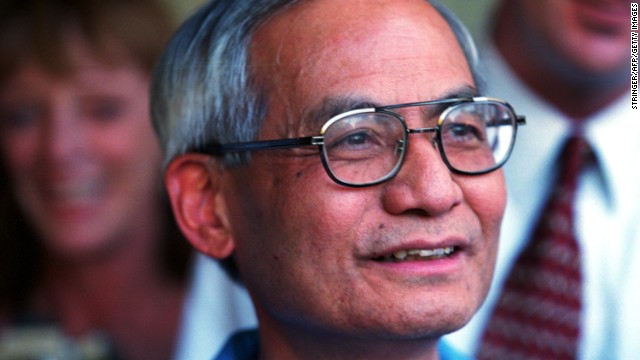 Wen Ho Lee was a scientist at the Los Alamos Laboratory in New Mexico who was charged with 59 counts of downloading classified information onto computer tapes and passing it to China. Lee eventually agreed to plead guilty to a since count of mishandling classified information after prosecutors deemed their case to be too weak. He was released after nine months in solitary confinement. Lee later received a $1.6 million in separate settlements with the government and five news agencies after he sued them, accusing the government of leaking damaging information about him to the media.
Wen Ho Lee was a scientist at the Los Alamos Laboratory in New Mexico who was charged with 59 counts of downloading classified information onto computer tapes and passing it to China. Lee eventually agreed to plead guilty to a since count of mishandling classified information after prosecutors deemed their case to be too weak. He was released after nine months in solitary confinement. Lee later received a $1.6 million in separate settlements with the government and five news agencies after he sued them, accusing the government of leaking damaging information about him to the media. 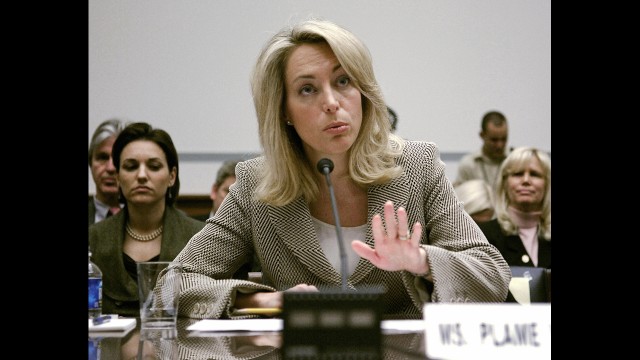 Members of the Bush administration were accused retaliating against Valerie Plame, pictured, by blowing her cover in 2003 as a U.S. intelligence operative, after her husband, former Ambassador Joe Wilson, wrote a series of New York Times op-eds questioning the basis of certain facts the administration used to make the argument to go to war in Iraq.
Members of the Bush administration were accused retaliating against Valerie Plame, pictured, by blowing her cover in 2003 as a U.S. intelligence operative, after her husband, former Ambassador Joe Wilson, wrote a series of New York Times op-eds questioning the basis of certain facts the administration used to make the argument to go to war in Iraq. 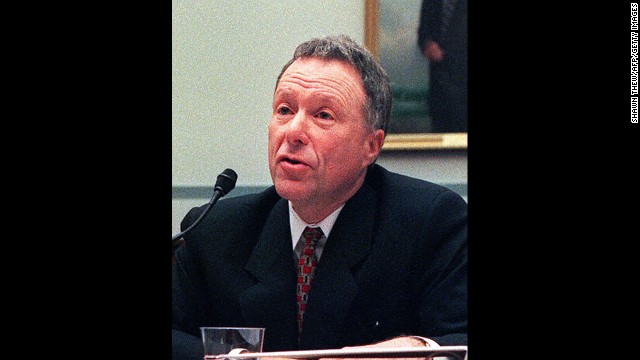 In 2007, Lewis "Scooter" Libby, Vice President Dick Cheney's former chief of staff, was convicted on charges related to the leak of the identity of CIA operative Valerie Plame. Libby was convicted of obstruction of justice and perjury in connection with the case. His 30-month sentence was commuted by President George W. Bush. Cheney told a special prosecutor in 2004 that he had no idea who leaked the information.
In 2007, Lewis "Scooter" Libby, Vice President Dick Cheney's former chief of staff, was convicted on charges related to the leak of the identity of CIA operative Valerie Plame. Libby was convicted of obstruction of justice and perjury in connection with the case. His 30-month sentence was commuted by President George W. Bush. Cheney told a special prosecutor in 2004 that he had no idea who leaked the information. 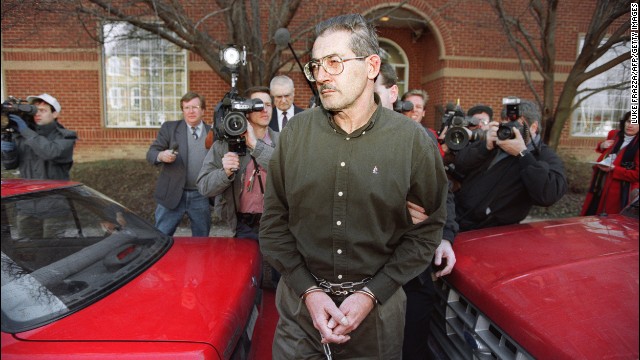 Aldrich Ames, a 31-year CIA employee, pleaded guilty to espionage charges in 1994 and was sentenced to life in prison. Ames was a CIA case worker who specialized in Soviet intelligence services and had been passing classified information to the KGB since 1985. U.S. intelligence officials believe that information passed along by Ames led to the arrest and execution of Russian officials they had recruited to spy for them.
Aldrich Ames, a 31-year CIA employee, pleaded guilty to espionage charges in 1994 and was sentenced to life in prison. Ames was a CIA case worker who specialized in Soviet intelligence services and had been passing classified information to the KGB since 1985. U.S. intelligence officials believe that information passed along by Ames led to the arrest and execution of Russian officials they had recruited to spy for them. 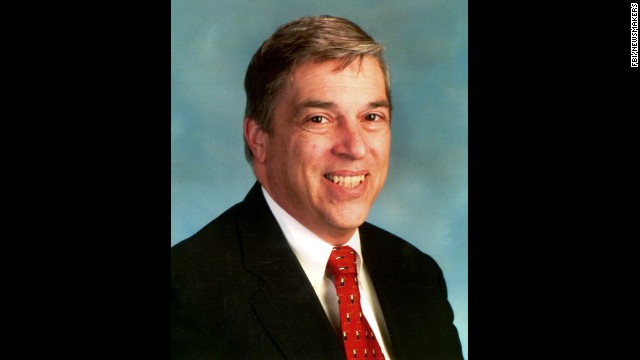 Robert Hanssen pleaded guilty to espionage charges in 2001 in return for the government not seeking the death penalty. Hanssen began spying for the Soviet Union in 1979, three years after going to work for the FBI and prosecutors said he collected $1.4 million for the information he turned over to the Cold War enemy. In 1981, Hanssen's wife caught him with classified documents and convinced him to stop spying, but he started passing secrets to the Soviets again four years later. In 1991, he broke off relations with the KGB, but resumed his espionage career in 1999, this time with the Russian Intelligence Service. He was arrested after making a drop in a Virginia park in 2001.
Robert Hanssen pleaded guilty to espionage charges in 2001 in return for the government not seeking the death penalty. Hanssen began spying for the Soviet Union in 1979, three years after going to work for the FBI and prosecutors said he collected $1.4 million for the information he turned over to the Cold War enemy. In 1981, Hanssen's wife caught him with classified documents and convinced him to stop spying, but he started passing secrets to the Soviets again four years later. In 1991, he broke off relations with the KGB, but resumed his espionage career in 1999, this time with the Russian Intelligence Service. He was arrested after making a drop in a Virginia park in 2001. 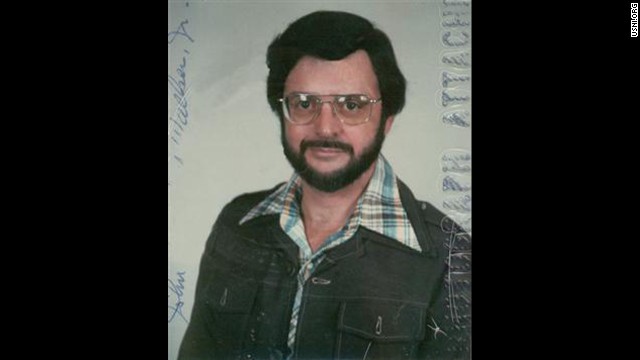 John Walker ran a father and son spy ring, passing classified material to the Soviet Union from 1967 to 1985. Walker was a Navy communication specialist with financial difficulties when he walked into the Soviet Embassy and sold a piece of cyphering equipment. Navy and Defense officials said that Walker enabled the Soviet Union to unscramble military communications and pinpoint the location of U.S. submarines at all times. As part of his plea deal, prosecutors promised leniency for Walker's son Michael Walker, a former Navy seaman.
John Walker ran a father and son spy ring, passing classified material to the Soviet Union from 1967 to 1985. Walker was a Navy communication specialist with financial difficulties when he walked into the Soviet Embassy and sold a piece of cyphering equipment. Navy and Defense officials said that Walker enabled the Soviet Union to unscramble military communications and pinpoint the location of U.S. submarines at all times. As part of his plea deal, prosecutors promised leniency for Walker's son Michael Walker, a former Navy seaman. 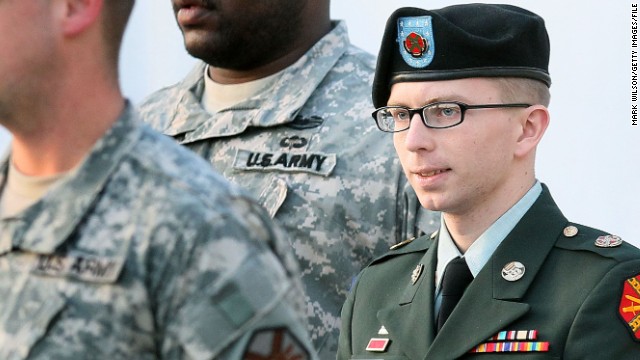 Pfc. Bradley Manning is an Army intelligence specialist who is charged with passing along classified material to WikiLeaks, a group that facilitates anonymous leaking of secret information. Manning pleaded guilty to 10 of the 22 charges against him and could face 20 years in prison. But he pleaded not guilty to the most serious charge, aiding U.S. enemies, which carries a potential life sentence.
Pfc. Bradley Manning is an Army intelligence specialist who is charged with passing along classified material to WikiLeaks, a group that facilitates anonymous leaking of secret information. Manning pleaded guilty to 10 of the 22 charges against him and could face 20 years in prison. But he pleaded not guilty to the most serious charge, aiding U.S. enemies, which carries a potential life sentence. 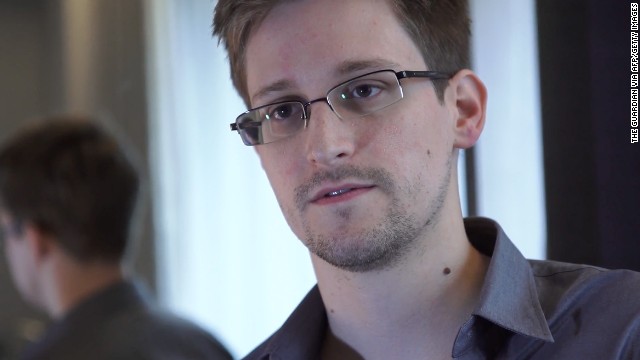
No hay comentarios:
Publicar un comentario